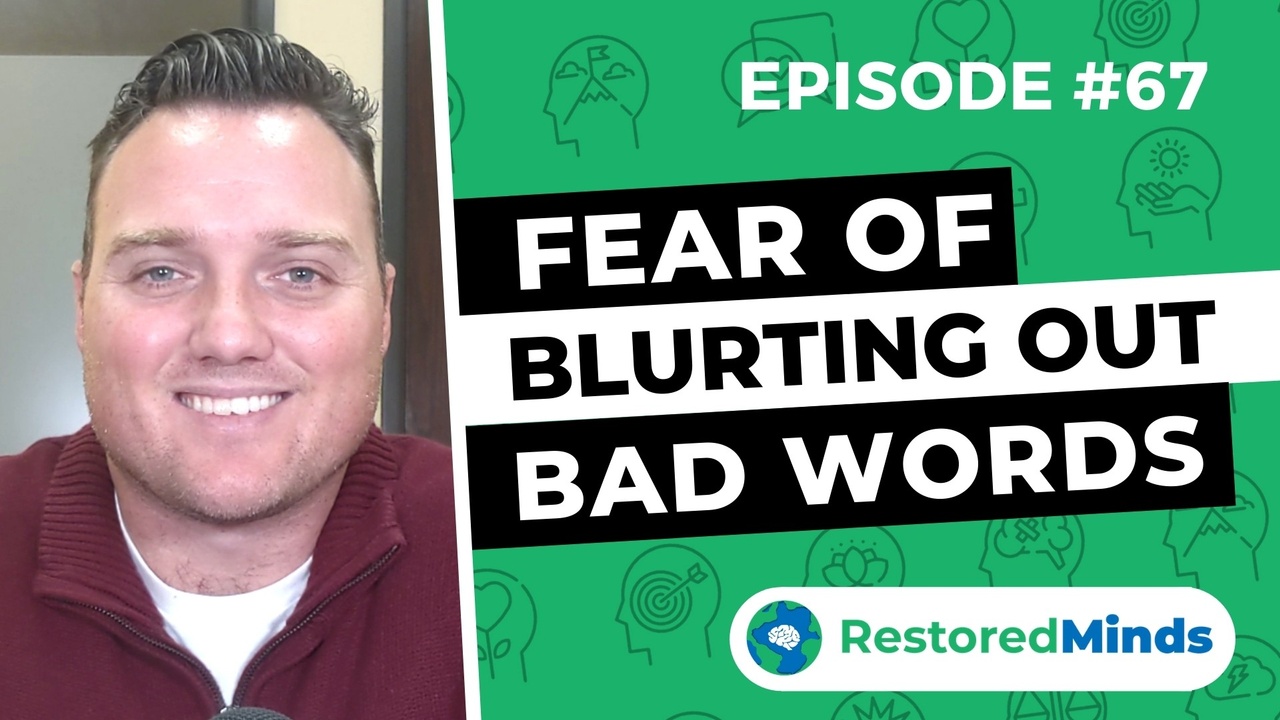Fear of Blurting Out Bad Words
Feb 04, 2021
Understanding the Fear of Blurting Out Bad Words
As Matt explained in our latest episode, the fear of blurting out obscenities often stems from anxiety and OCD. It usually revolves around specific words or phrases that are extremely uncharacteristic of the individual experiencing them. This form of anxiety can be particularly distressing in certain contexts, such as professional settings or religious environments.
Why Does This Happen?
Most people who struggle with this fear are very conscientious and have never blurted out anything inappropriate in the past. The mere idea of saying something hurtful or inappropriate is so appalling to them that it causes great distress. According to Matt, this distress is not common among individuals who might align with those thoughts—it's usually experienced by those to whom these thoughts are highly repulsive. This cognitive dissonance is a key reason why these thoughts become so distressing.
How to Overcome the Fear of Blurting Out Bad Words
Matt breaks down the approach to overcoming this fear into three main components:
-
Diffusion from Thoughts
-
Identifying and Changing Behaviors
-
Progressive Exposure and Response Prevention
Step 1: Diffusion from Thoughts
The first step in overcoming this fear is to differentiate yourself from the thoughts. You are not your thoughts; you are merely experiencing them. Realize that thoughts can be random and often don’t reflect your true self. The distress often comes from the shock and guilt of having such thoughts. By acknowledging that these thoughts are not a reflection of who you are, you can begin to mitigate the anxiety associated with them.
Step 2: Identifying and Changing Behaviors
Behavioral change is crucial in breaking the anxiety loop. This loop typically involves the thought (fear of blurting out), the uncomfortable feeling (anxiety or guilt), and the behavior (actions taken to neutralize the thought or feeling). By focusing on altering behaviors rather than trying to control the thoughts or feelings, you break the loop that perpetuates the anxiety. For instance, if you have certain triggers like specific environments or people, recognize these and plan for them.
Step 3: Progressive Exposure and Response Prevention
This step involves gradually exposing yourself to the feared situations while refraining from engaging in behaviors that neutralize the anxiety. This could be something as simple as writing down the feared phrase and carrying it with you in triggered environments. Over time, this method reduces anxiety through systematic desensitization.
Conclusion: You Can Overcome This
Overcoming the fear of blurting out bad words is possible. It involves learning the correct strategies and focusing on behavior changes. Matt assures that with the right approach, one can move past this fear to the point where it no longer causes distress.


